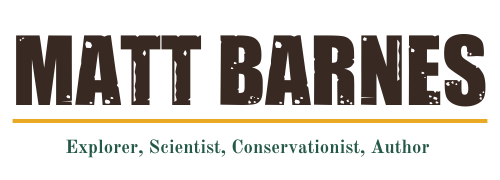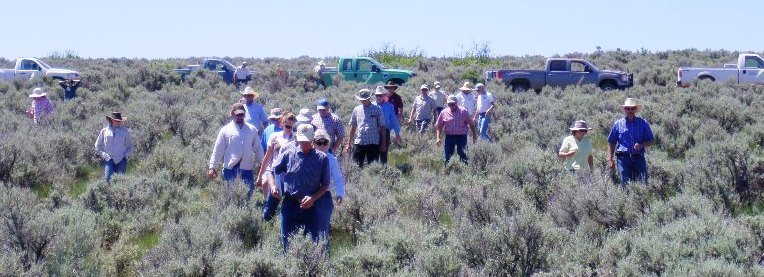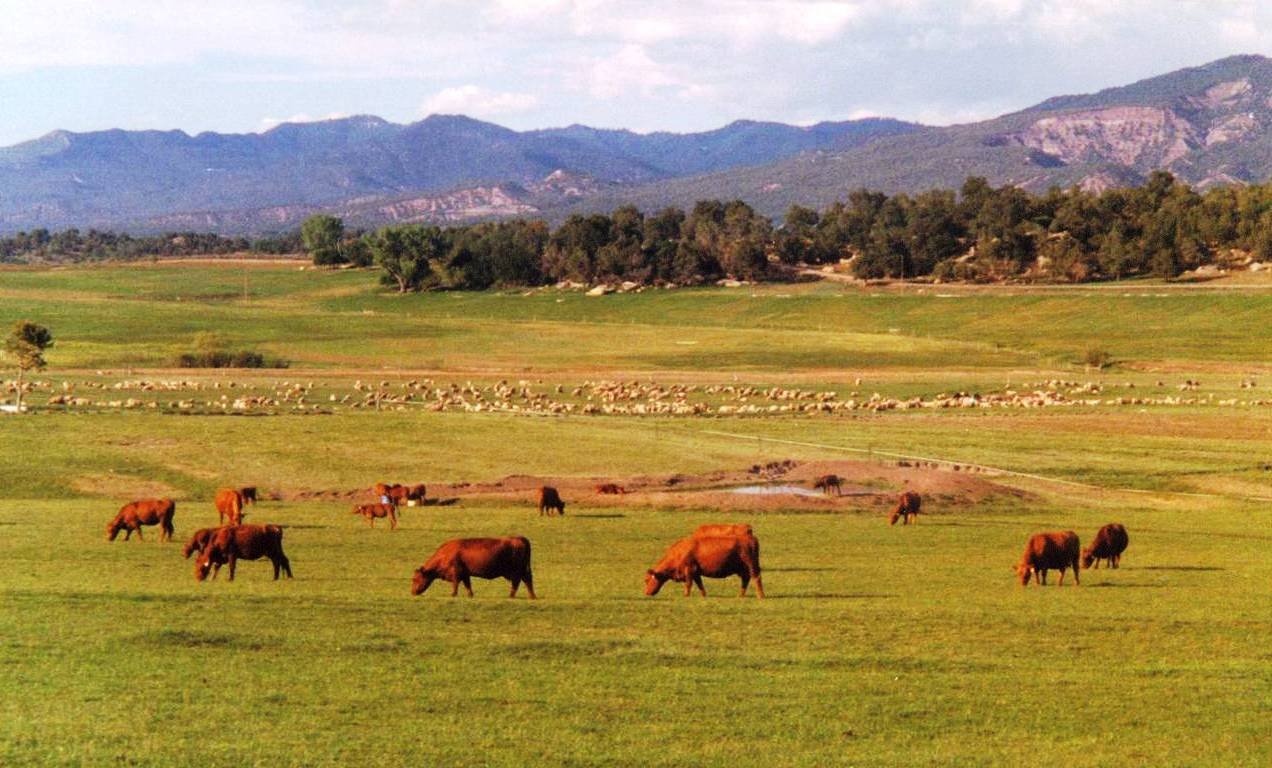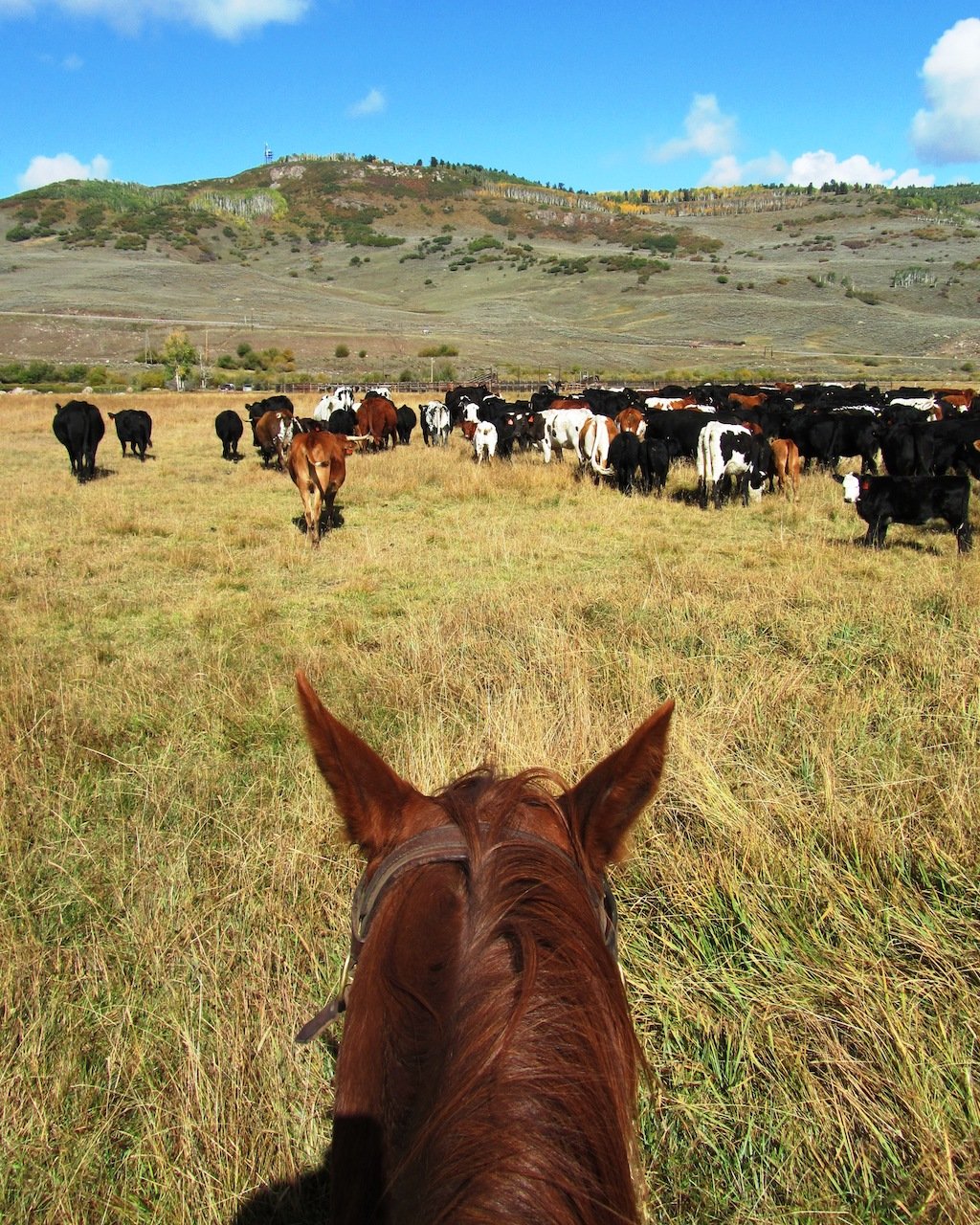
FIELD NOTES
Land and life at the confluence of Earth and Sky
Christmas Eve 2011
I hope that this annual dispatch from the frontier finds you well, enjoying the holidays with your loved ones, and reflecting on a well-lived 2011—what a year it’s been!
Integrating rangeland ecosystem services and ranch economics
Profitable ranches integrate land stewardship and economics. Rangeland ecosystem services, and payments for them, were the focus of the annual Nick Petry Workshop, held by the Colorado State University (CSU) Western Center for Integrated Resource Management at the National Western Complex in Denver on Dec. 2.
Connecting with fellow new agrarians at the Quivira Coalition conference
The progressive ranching movement is part of a larger movement of new agrarianism, a forward-looking, well-connected, well-educated, migration back to the land. It is moving at the speed of the internet. It is about healthy land, sustainable agriculture, and local food, not in the linear sense of producing products but in the more holistic sense of a way of life. As such it stands in sharp relief against the backdrop of industrial agribusiness. The movement’s philosophical roots are diverse, but the concept of the new agrarianism has its modern roots in the writings of farmer-philosopher Wendell Berry, and among the movement’s adherents in the western ranching community, in the writings of conservationist Courtney White.
Setting new posts in old ground
Always wondered how those old-timers set so many fenceposts.
Now I’m replacing an old hard wood post that’s done its time
with a new one, milled round and freshly treated.
The Headwaters Conference
I value work that sustains life, promotes diversity and harmony, and provides a rich variety of experiences. That is why I work on the land, and also why I love the stories that come from the land, and the exchange of ideas about how best to live on the land. So, last weekend I took a day off from the ranch and attended the Headwaters Conference at Western State College.
Struck by thunder
For the last couple of weeks, I’ve been having what might have been a premonition. Out on the range by myself I have a lot of time to think, and a lot of fence to fix, so much that I can’t always get it done before the afternoon storms of this summer monsoon. One thought repeatedly produced by the constant banter of my subconscious has been: what would it be like to be struck by lightning? If not fatal, would it be enlightening? Spiritual awakening has been described as like being struck by lightning, but it has also been said to be an interminable process. Enlightenment hasn’t come to me yet, through prayers for it or through meditation, so I had wondered if getting struck by lightning might actually bring a sort of enlightenment with it. Apparently not.
The LeValley Ranch: rangeland management for diversity, wildlife, and livestock production
Last Friday, about fifty ranchers, conservationists, and government employees gathered near Hotchkiss, Colorado, for a day-long field tour of the LeValley Ranch, hosted by the Colorado Section of the Society for Range Management and organized by Lars Santana, rangeland management specialist with the USDA Natural Resources Conservation Service in Montrose, Colorado. The ranch won the Excellence in Rangeland Conservation Award from the CSSRM last year. It is owned and operated by Mark and Robbie (Baird) LeValley, and Mark’s brother Hank. Many of us know Robbie as the local Colorado State University Extension livestock and range specialist, and past president of both the CSSRM and the Colorado Cattlemen’s Association, but on this rare day at home—but still at work—she mostly ceded the stage to husband and full-time ranch manager Mark.
Neighboring at a spring cattle works on the great divide
On the western range, neighboring always brings together some of the most fascinating people to do some of the most engaging work. There is something about hands-on work with animals that makes us more fully human, more fully alive. And on the stark, uncluttered landscape of the high, dry San Luis Valley, the hard work of branding day on a ranch that raises organic grassfed beef brings clarity to the old paradoxes of living on this land and raising livestock in a way that sustains the continuity of life.
Shining Horizons: ranching for resilience on Rocky Mountain rangelands
As a rangeland conservationist and ranch manager in western Colorado, I have the opportunity to live and work in a land of great beauty. Indeed, the western landscape is what drew me to the rangeland profession in the first place. Over the years, I’ve tried to capture a little bit of that beauty with my digital camera. In the last year or so I’ve been doing a lot of ranch work, and since the ranching world tends to require long hours, I’ve often found myself working in photogenic places during the low-angle amber light of dawn and dusk, and many times I’ve realized that I was standing in a photograph, I just had to pull out my pocket digital, compose the shot, press the shutter button, and a great image was transferred from reality to pixels.
Low-input grassfed livestock production for ecological, economic, and social resilience
“When you’re taking a product from the land… all of the energy that we make use of comes from the sun,” rancher Dennis Moroney reminded the audience at the Sustainable Rangelands Through Low-Input Grassfed Production symposium during the 2010 annual meeting of the Society for Range Management (SRM).
Winter Solstice, Christmas, and New Year wishes
It has been quite an eventful year, especially professionally. In February, I co-organized a rancher-oriented session on sustainable grass-fed livestock production at the international Society for Range Management conference hosted by the Colorado Section in Denver. In April I left the USDA Natural Resources Conservation Service after five good years to start my rangeland and ranch planning, monitoring, management and consulting business, Shining Horizons Land Management, LLC.
Ute bears
At the Ute Indian Museum in Colorado’s Uncompagre Valley, on Chipeta Day, an annual event hosted by the Friends of the Ute Indian Museum, I signed up for the plein air art festival. I’d never done anything like that before, and only recently started to revive my artistic side — hibernating since I was in high school — so I wasn’t sure if I was ready, but with a little encouragement from both my art instructor and my girlfriend, I did it anyway.
Nightlife in cow camp
Last night I, the sole human resident of Cox Park, woke to a noise from my outdoor kitchen.
Either the heifers have gotten in there again, or it is another bear, I thought. I had awakened to a bear in the kitchen a few nights ago, scaring it away before it got any food.
Myth and reality west of Eden
I was not born here, but I call this region home. Like so many before me, I heard its call from across the continent, and came chasing a dream. A formless dream, not of riches, but of a landscape of beauty and myth, romance and adventure. To “see the West before it’s gone,” but of course it is not going anywhere; it is just changing. The land is not a static backdrop for the human drama, but a dynamic aspect of the one great story.
Listening to the voice, leaving the path, living the legend
I just read Paulo Coelho‘s The Alchemist, the story of a boy who leaves the seminary to become a shepherd so that he can read and travel, and who lives out his own personal legend seeking treasure, physical and spiritual, crossing the Sahara. I had thought that sometimes we, at least some of us, need to strike out cross-country instead of following the established path. Now I see that we all need to find our own way.
Sunburnt and saddlesore in the Land of Shining Mountains
My goal is to live as part of the Western landscape, in a way that makes sense in the greater whole, that not only does not degrade it but sustains and restores it. Success is measured in terms of a triple bottom line of ecological, economic, and sociocultural resilience.
















